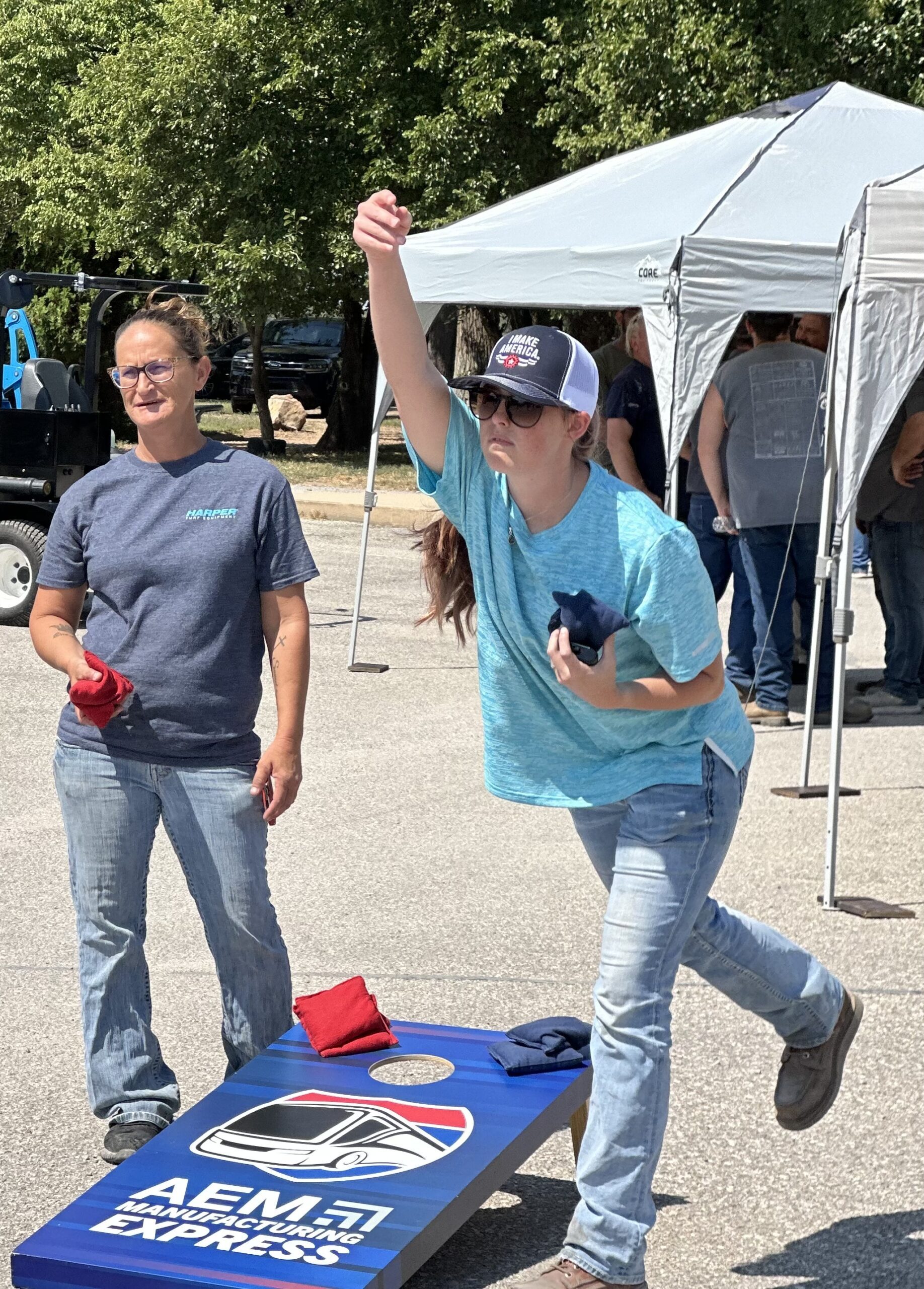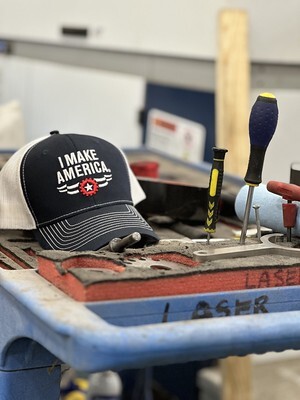“50 years ago, this used to be an alfalfa field,” Tim Penner, President of Harper Industries, explains with a chuckle. “In high school, I had to bale hay on my farm in Nebraska—and I hated it!”

The crowd chuckles back. It’s not surprising, given where we’re standing. This is Harper Industries in Harper, Kansas, and this facility produces agriculture equipment, turf-care solutions, and hydraulic systems (not to mention a suite of high-efficiency hay bale beds) that are household names in their respective industries. They create complex yet reliable machines that make modern American life possible. For Penner, it’s even simpler than that: “We make hard jobs easier.” In other words, Harper Industries makes equipment that puts people first—equipment that, first and foremost, improves the lives of Harper customers, Harper employees, and the Harper community.
The Manufacturing Express visit to Harper Industries on Tuesday served as a celebration of the men and women that form the backbone of the Harper, Kansas manufacturing community. There’s a reason that Harper Industries takes their name from the town it calls home—here in tight-knit southern Kansas, folks live and work side-by-side, supporting each other on the factory floor like they do as neighbors: one name, and together, one community.
So, as Harper Industries grows, so does Harper, Kansas. Within the last two decades, Harper Industries has gone from 60 employees to 180, and they now boast a team of 24 full-time welders. These aren’t temporary hires, by the way; over their 26-year history, Harper Industries has never had to experience a layoff. Quite an accomplishment—but to Luke Thornton, VP of Operations, layoffs are antithetical to how Harper treats their own. “We take pride in putting our people first,” Thornton explained. “We are mindful with who works which shifts because we want people to have dinner with their families, see their kids’ sporting events.”

Harper Industries’ commitment to the community didn’t happen by accident; it was a conscious decision that Tim Penner took a quarter-century ago. Harper Industries’ predecessor, DewEze, began manufacturing bale beds and hay-handling tools in 1968. The company grew and evolved over the ensuing decades, developing turf and hydraulics divisions, and in 1991, it was acquired by a private equity firm. Then, in 1998, a group led by Tim Penner “brought the company home,” as he likes to say. They purchased the DewEze assets back from private equity and rechristened it Harper Industries, named after the town where it all began.
The rest, as they say, is history. The 21st century has seen Harper Industries continue to innovate in their production and invest in their community. Harper Industries’ newest line of bale beds, the DewEze 800/900 Series, feature further-improved productivity, storage, and visibility. Harper Industries also donates a whopping 10% of their profits to charity—and often more.
Plus, Harper’s not just in Kansas anymore. Though they produce nearly everything directly in-house in Harper, Kansas, Harper Industries ships their equipment all over North America, and even beyond. Their philanthropic support also stretches far beyond the town they call home: Harper Industries frequently does charitable work around the world, funding healthcare, food, and basic education for the local populations. Whether they live in Kansas or in Bolivia, Harper Industries always puts people first.
At Harper Industries, there are four core values: Authenticity, Drive, Humility, and Trustworthiness. Four descriptors of people, really, and typically not descriptors of companies; yet Harper Industries isn’t a typical company. Their commitment to their neighbors in Harper, Kansas, and to their neighbors all over the world, are evidence of something more than just an equipment manufacturing facility. To the members of its community, Harper Industries feels like home—because it is.


